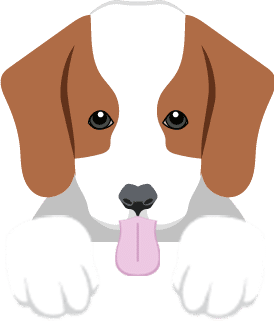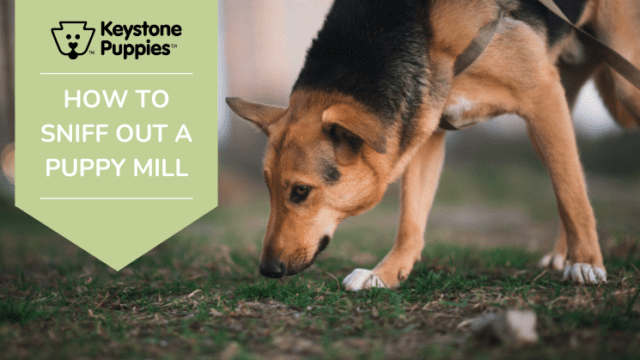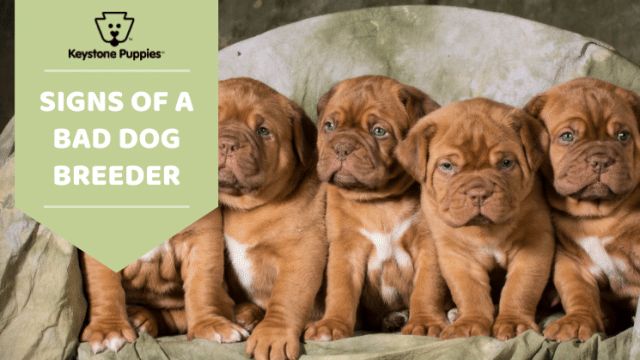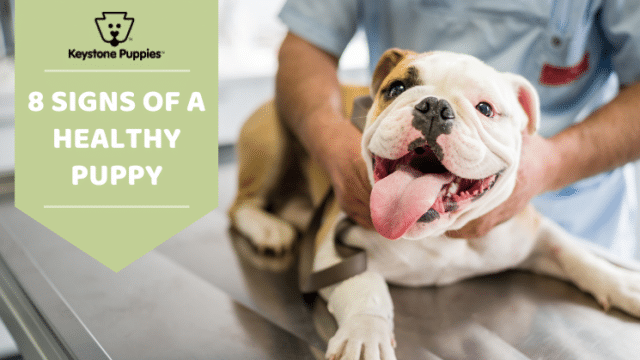What Foods Are Bad for Puppies?
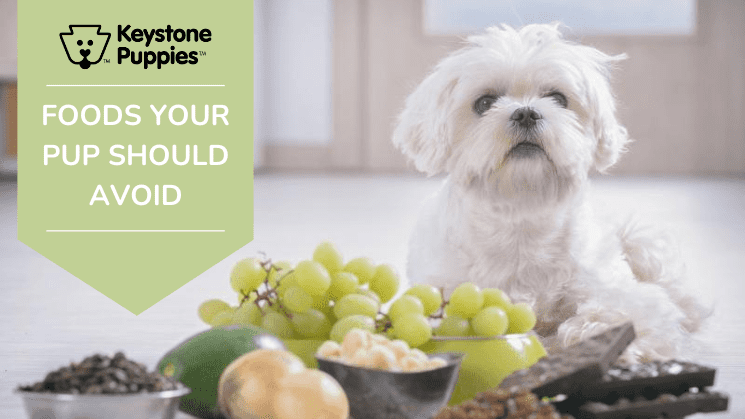
Welcoming a new puppy into your home is an exciting time, but ensuring their health and safety is essential. Knowing which foods to avoid can prevent potential harm to your furry friend. From common knowledge like eating chocolate to lesser-known dangers like grapes and onions, this blog will guide you on keeping your puppy safe and healthy.
Human Foods to Avoid for Puppies
Sharing human snacks with your pup isn’t uncommon, but pet owners need to be conscious of what they’re feeding their dogs – here’s a list of food to keep their paws off of:
Common foods
- Chocolate: Theobromine, a chemical found in chocolate is toxic to dogs and causes vomiting, seizures and even death.
- Grapes: The digestion of grapes with dogs has been linked to kidney failure.
- Avocado: This superfood contains persin, which can lead to an upset stomach with vomiting / diarrhea.
- Onions: N-propyl, a compound found in onions is linked to damaging red blood cells in dogs.
- Xylitol: Gum, baked goods, and candy are common items that contain this chemical that can cause liver failure.
Not so common foods
- Alcohol: Don’t leave your drinks unsupervised near your pet, alcohol consumption can cause intoxication and make them lethargic.
- Raw dough: Ingesting uncooked yeast can cause the dough to expand in a dog’s belly, causing serious discomfort.
- Hops: Home brewers beware, hops and dogs don’t mix. Hops can cause hyperthermia if your puppy gets into your beer making kit.
- Expired food: Moldy food can pose a risk of illness to pets just like it can to humans.
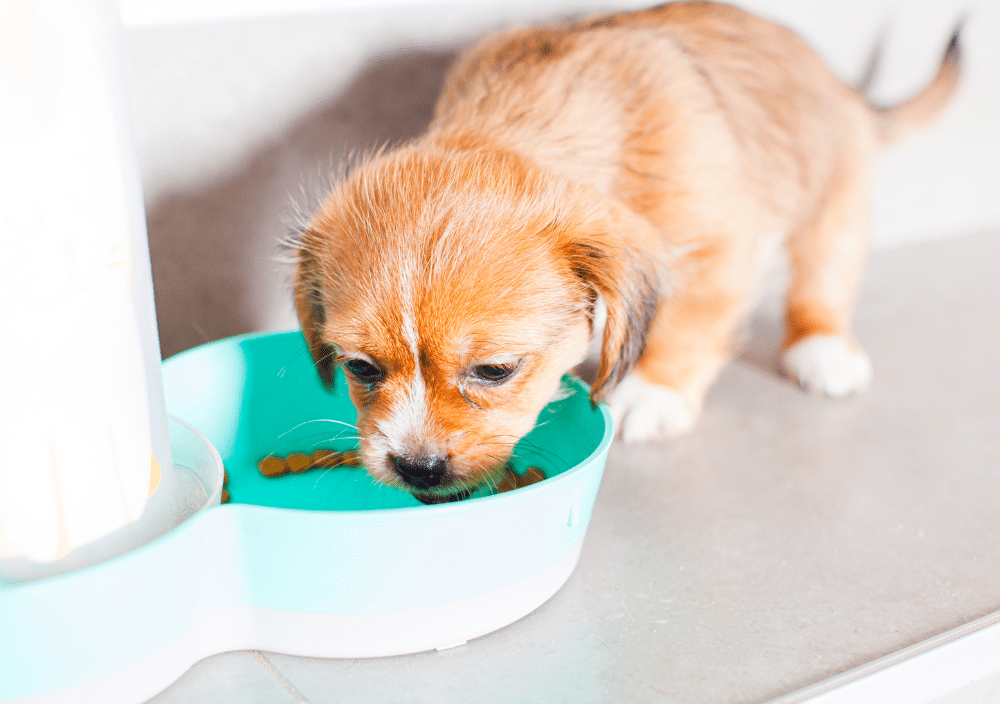
Non-Human Foods that Can Harm Puppies
Items that don’t look tasty to us don’t necessarily mean they won’t to Fido. It’s best to keep these following items out of their reach.
Household plants
- Aloe Vera: Medicinal for us but bad for our furry friends, aloe vera can cause an upset stomach and loose stools.
- Lilies: This spring seasonal favorite plant can cause kidney failure in dogs.
- Mums: Don’t let this plant fall into your dog’s reach, as mums can cause an upset stomach and confusion.
- Ivy: This decorative addition to your home can be harmful to dogs, potentially causing abdominal pain and vomiting if ingested.
House items
- Cleaning products: Make sure your kitchen sprays, bleach, and other cleaning staples are stored safely out of reach. These products can harm your dog if ingested.
- Lawn care products: Certain insecticides and lawn care products can be toxic to dogs, so it’s crucial to read the labels before purchasing and ensure they are stored safely out of reach.
- Coins: Your pocket change contains zinc, which can cause kidney and liver damage to your pet.
- Antifreeze: The scent of antifreeze can attract your pet, but it is highly toxic and can cause poisoning.
- Pharmaceuticals: Store your prescription pills securely to prevent your pets from accessing them.
Common Dog Training Treats to Avoid
During your puppy’s training, you’ll likely offer them treats, but not all pet-shop options are suitable. Here are some pet treats considered unhealthy.
- Common treats: Check the ingredients on the labels of the treat. Is it high in sugar and fat? Artificial colors? Skip those and go with options with ingredients such as fish, chicken, or vegetables.
- Rawhide: Rawhide chews can be harmful to puppies, splintering off into large pieces and causing indigestion and potential choking.
Tips for Accidental Ingestion
If your puppy happens to ingest a toxic product, quick action is necessary to keep them safe.
Recognizing signs of sickness
- Physical symptoms: Is your dog appearing weak and unusually tired? Lethargy, accompanied by vomiting and shivering, is a warning sign.
- Missing or damaged items: If your trash is all over the kitchen floor, your puppy may have gotten into it. Monitor their behavior for 48 hours or contact your vet for advice.
Immediate steps to take - Contact a veterinarian: Call your dog’s veterinarian or a pet emergency center if symptoms appear.
- Don’t try home remedies: Leave the treatment to the professionals to avoid worsening your puppy’s condition.
- Stay calm: Keep your dog at ease as much as possible while you work on getting them veterinary attention.
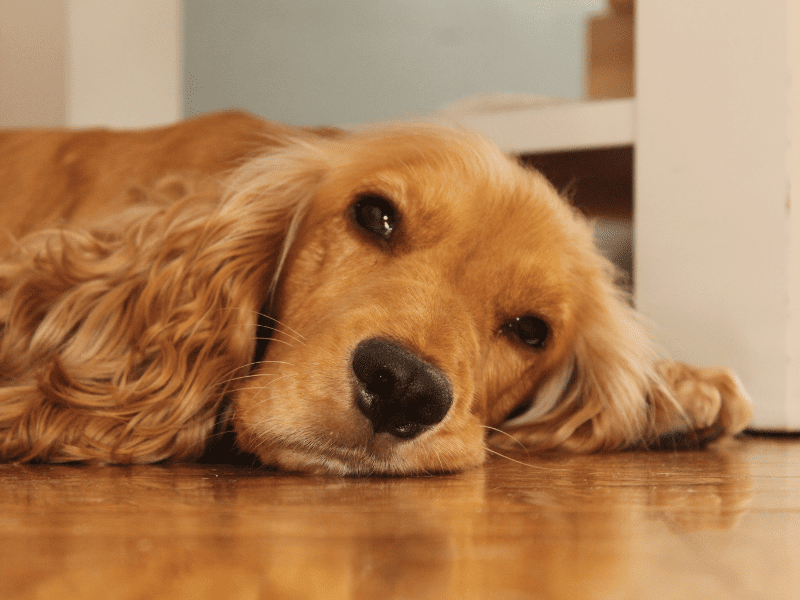
How to Achieve Puppy Nutrition
To make sure your puppy is happy and healthy, understanding the basics of what nutrients they need to grow is essential. This also takes in account for recognizing the foods to keep away from their noses. Before you make the decision to get the puppy of your dreams, make sure you do research on the breed’s dietary needs and restrictions because not all dogs are the same.
Puppy Nutrition Resources:
Dog Food Choice: 4 Factors To Consider (AKC)
Breed Specific vs. All Breed Diets (Tufts Vet Nutrition)
Nutritional Needs of Different Breeds of Dogs (WebMD)
When selecting food, prioritize the highest quality options and follow portion recommendations from your veterinarian. Shop online for your pup today and save 10% when you subscribe to any BARK food item.
Maintaining a feeding schedule helps regulate meals and prevents your dog from overeating. Most importantly, pay close attention to your puppy’s needs and behavior, as they are just as thrilled to be a part of your family as you are to have them.

